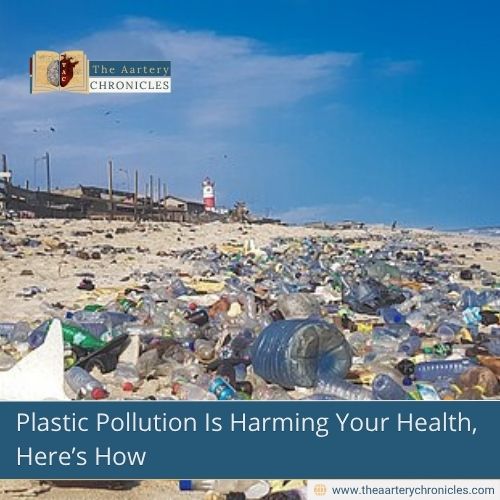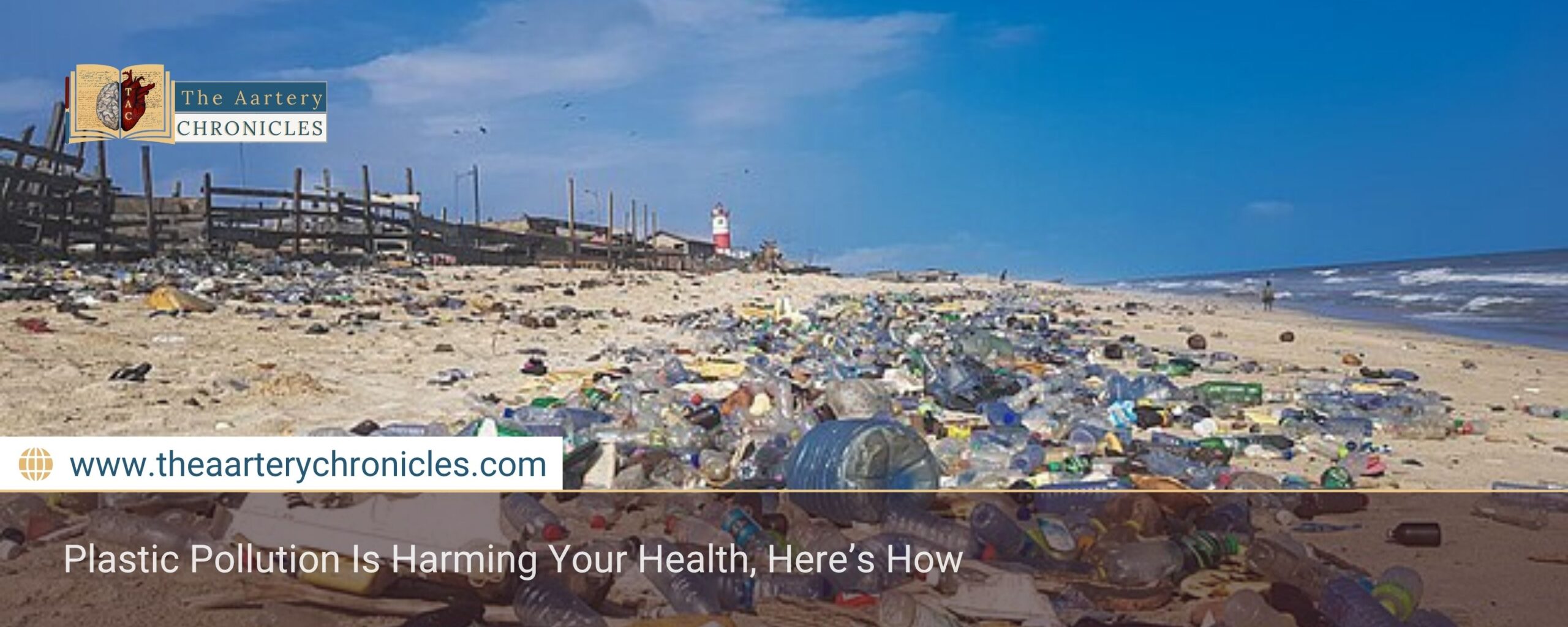

Plastic Pollution Is Harming Your Health, Here’s How
A recent article in The Lancet warns that plastic pollution is not just an environmental concern but also a serious public health threat. The article also announces the launch of a new global initiative: the Lancet Countdown on Health and Plastics.
How Plastic Pollution Affects Health at Every Stage
Plastics affect our health not just when they become waste, but throughout their entire life cycle, from manufacturing to daily use, and ultimately to disposal.
1. Harmful Emissions from Plastic Production
According to police, Inderjeet, a constable assigned in Gonda who is said to be mentally unstable, was persuaded by his maternal uncle, Rama Shankar. Together, they believed that a sacrificial ritual to cure ailments would improve Inderjeet’s condition. This misguided belief led to the planning of a ritual involving the killing of an innocent child.
They were assisted by two other men, Bheem Gaur and Jai Prakash, all residents of the same village.
2. Chemicals in Plastics
Plastics contain a wide range of chemicals, many of which are not publicly disclosed. There’s little transparency about how much of these chemicals are produced, how they’re used, or how toxic they may be. Research shows that several of these substances can disrupt hormones, affect brain development, and harm reproductive health.
The Rise of Microplastics in the Human Body
Recent studies have detected microplastics, tiny plastic particles, in human organs, blood, and even breast milk. Although the exact health consequences are still under investigation, scientists recommend taking a precautionary approach given the unknown but potentially harmful effects.
Plastic Waste: A Global Pollution Problem
1. Burning Waste Creates Toxic Air
In many low- and middle-income countries, around 57% of plastic waste is burned in the open, releasing harmful chemicals into the air. This contributes to dangerous levels of air pollution, increasing the risk of asthma, heart disease, and other health issues, especially in vulnerable populations.
2. Breeding Grounds for Disease
Disused plastic items like bottles and bags can collect rainwater and become breeding grounds for mosquitoes. This can lead to an increase in vector-borne diseases such as malaria and dengue. Plastic waste can also host harmful bacteria, raising concerns about antimicrobial resistance.
The Lancet Countdown on Health and Plastics
To better understand and track the health impacts of plastic pollution, experts have launched the Lancet Countdown on Health and the Environment, focusing on plastics. This project will monitor key health indicators related to plastics across their entire life cycle, from production to disposal. The first global report is expected in mid-2026.
Conclusion
Plastic pollution is more than an environmental issue; it’s a public health emergency. As plastic use continues to rise, so do the risks to human health. Governments, health professionals, and individuals must work together to reduce plastic waste and limit exposure to harmful plastic-related chemicals.
Source: Inputs from various media Sources
I’m a pharmacist with a strong background in health sciences. I hold a BSc from Delhi University and a pharmacy degree from PDM University. I write articles and daily health news while interviewing doctors to bring you the latest insights. In my free time, you’ll find me at the gym or lost in a sci-fi novel.
- Priya Bairagi
- Health News and Updates,People Forum
- 4 August 2025
- 09:00








